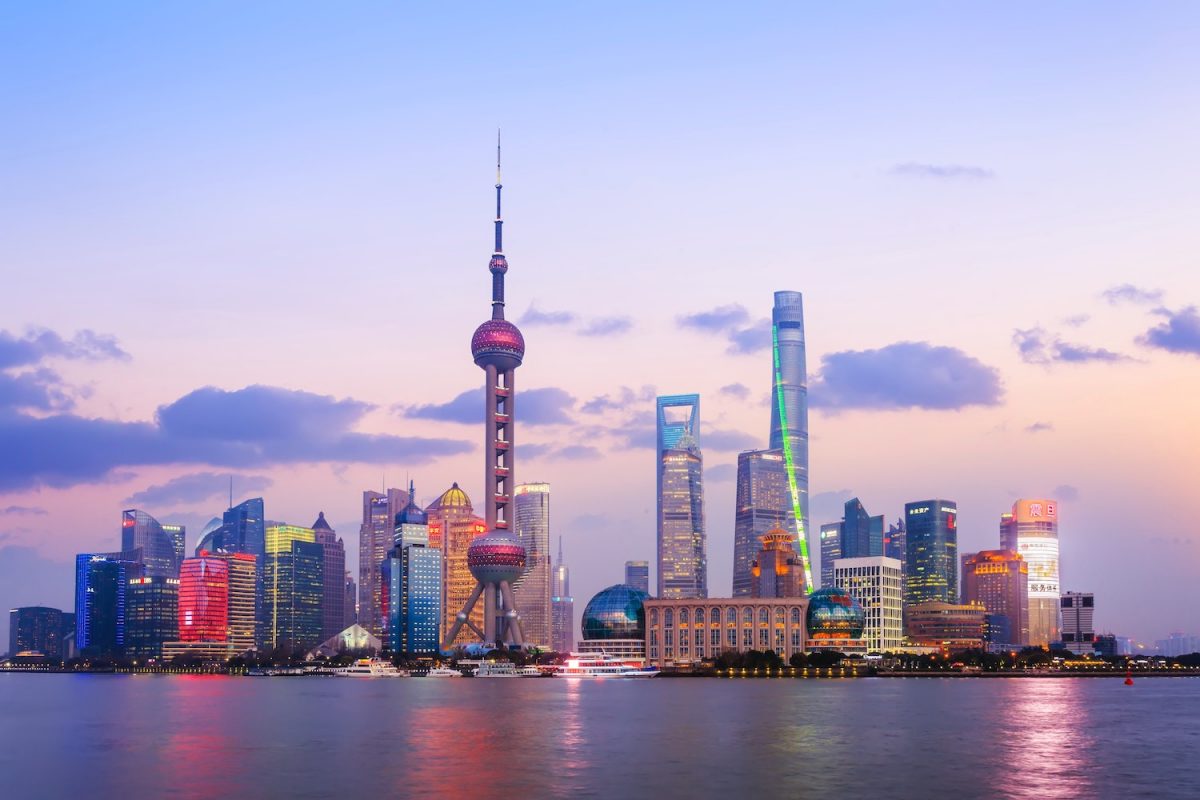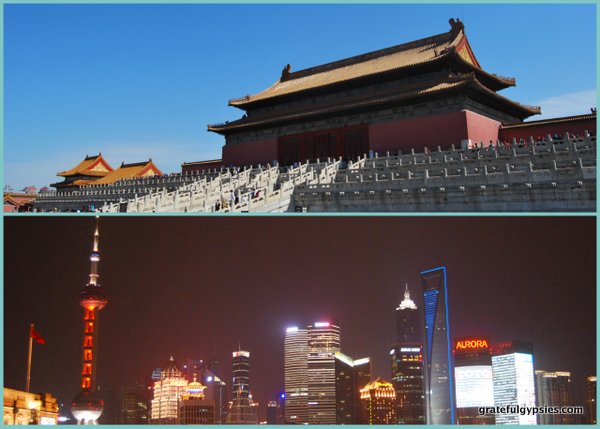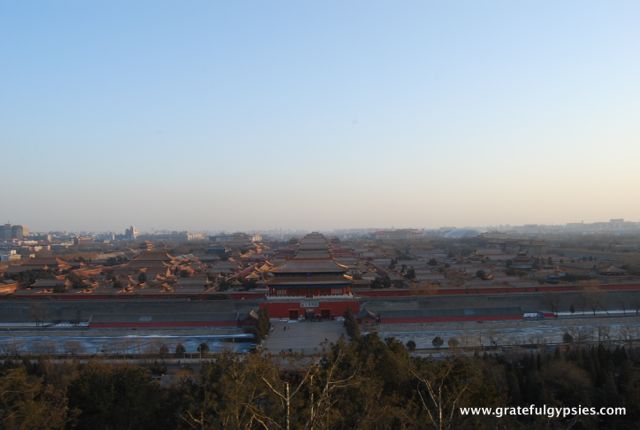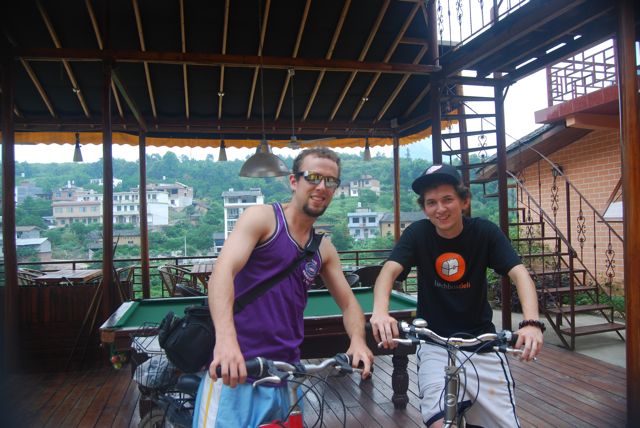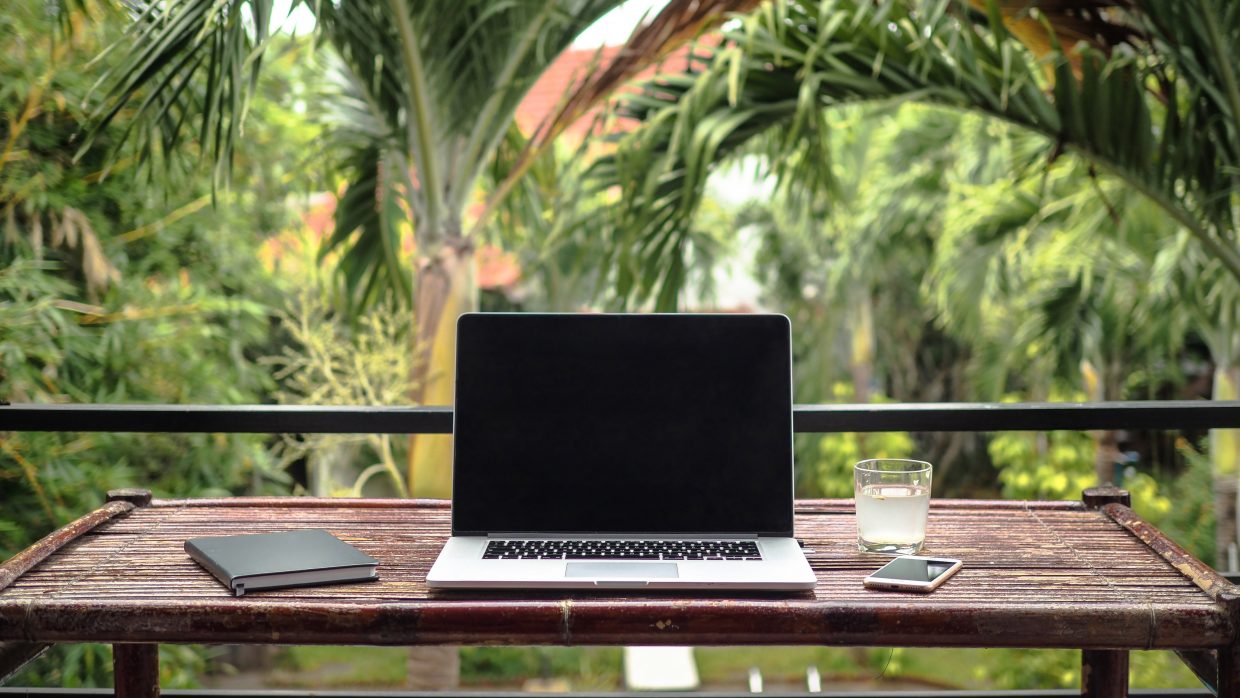Beijing and Shanghai are the two biggest and most famous Chinese cities. One is an ancient city known for its cultural icons, while the other is a modern metropolis full of futuristic skyscrapers. So which city is better? Well, you’ll just have to visit them both and decide for yourself! This post is actually all about making comparisons in Chinese. The Beijing vs. Shanghai debate is a good place to begin this lesson, though. Let’s start with a question…
北京比上海好吗?
běi jīng bǐ shàng hǎi hǎo ma
Is Beijing better than Shanghai?
Now let’s break down the question:
-
Beijing (北京 běi jīng)
-
compare (比 bǐ)
-
Shanghai (上海 shàng hǎi)
-
good (好 hǎo)
-
question word (吗 ma)
As you can see, it’s pretty easy to form the question:
Subject 1 + 比 + Subject 2 + Adjective + Question word
Now, how could you answer the question? Well, it depends on which side you’re on! Because I lived in Beijing for five years, of course I’d say…
北京比上海好
běi jīng bǐ shàng hǎi hǎo
Beijing is better than Shanghai.
However, some of my friends who call Shanghai home might disagree:
北京没有上海好
běi jīng méi yǒu shàng hǎi hǎo
Beijing isn’t better than Shanghai.
As you can see, to answer the question positively, you simply drop the question word 吗, and to answer negatively, you simply replace 比 with 没有, meaning “no.”
If you can’t travel to both Beijing and Shanghai to decide which one you like more, you can at least check them both out through some of our blog posts and videos! Here are a few of my favorites from over the years:
- A Perfect Day in Beijing
- Famous Beijing Landmarks
- Beijing Kao Ya: A Delectable Duck
- Cheap Eats in Shanghai
- Better Know a Municipality – Shanghai
- A Short Trip in Shanghai
Ok that’s enough of the Beijing vs. Shanghai debate for today. Let’s get on with the grammar lesson! Here are a few more examples of basic comparisons in Chinese using the character 比:
他比我忙
tā bǐ wǒ máng
He’s busier than me.
篮球比乒乓球有意思
lán qiú bǐ pīng pāng qiú yǒu yì si
Basketball is more interesting than ping pong.
咖啡比茶好喝
kā fēi bǐ chá hǎo hē
Coffee tastes better than tea.
我哥哥比我高
wǒ gē ge bǐ wǒ gāo
My older brother is taller than me.
苹果比香蕉贵
píng guǒ bǐ xiāng jiāo guì
The apples are more expensive than the bananas.
When making comparisons, you can be more specific. Let’s go back to the last example to see how to do that. Imagine you are shopping in the supermarket here in China and you see these signs:
Apples – 15 RMB/1 jin (苹果十五块一斤 píng guǒ shí wǔ kuài yī jīn)
Bananas – 10 RMB/1 jin (香蕉十块一斤 xiāng jiāo shí kuài yī jīn)
Well, you could just say, “the apples are more expensive than the bananas,” but you could also say…
The apples cost 5 RMB more than the bananas.
苹果比香蕉贵五块.
píng guǒ bǐ xiāng jiāo guì wǔ kuài
Here’s another example of a more specific comparison:
I’m 36 years old. My brother is 30 years old.
我三十六岁。 我弟弟三十岁。
wǒ sān shí liù suì. wǒ dì dì sān shí suì.
So, I can say…
I’m 5 years older than my brother.
我比我弟弟大五岁.
wǒ bǐ wǒ dì dì dà wǔ suì
Here are some more examples of making comparisons in Chinese in a video I made a while back:
Take what you’ve learned in this post and try to practice! Make three comparisons in Chinese, and try to answer this question as well:
中文比英文难吗?
zhōng wén bǐ yīng wén nán ma
Is Chinese more difficult than English?
The post Beijing vs. Shanghai first appeared on Chinese Language Blog.

